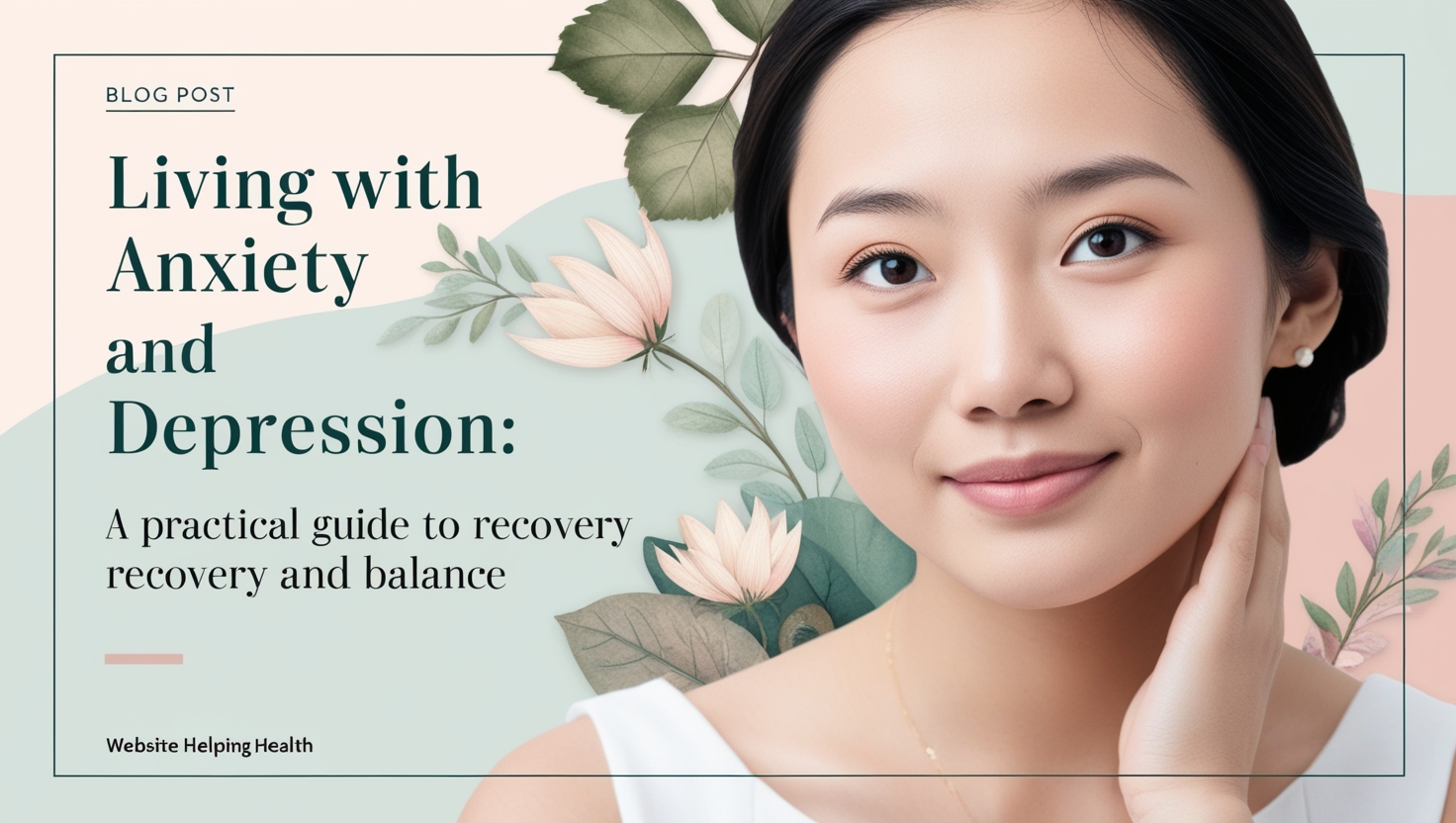
Living with Anxiety and Depression: A Practical Guide to Recovery and Balance
Anxiety and depression are two of the most common mental health challenges in today’s fast-paced world. They affect how people think, feel, and interact with their surroundings. While occasional stress or sadness is a part of life, persistent anxiety and depression can disrupt daily routines, relationships, and overall well-being.
The encouraging news is that with the right information, lifestyle changes, and professional care, people can manage these condit
ions and regain control of their lives. This article explores symptoms, causes, treatments, and self-care strategies for anxiety and depression, helping individuals build resilience and improve mental health.
What Are Anxiety and Depression?
-
Anxiety is an ongoing sense of worry, fear, or unease that may interfere with daily activities. It often shows up as generalized anxiety, panic attacks, or social phobia.
-
Depression is marked by feelings of sadness, hopelessness, or lack of interest in things once enjoyed. It can affect energy levels, concentration, and motivation.
Although distinct, these two conditions often occur together. Understanding both is key to managing them effectively.
Recognizing the Symptoms
Common Signs of Anxiety
-
Restlessness and irritability
-
Rapid heartbeat and sweating
-
Difficulty focusing
-
Persistent worry
-
Trouble sleeping
Common Signs of Depression
-
Loss of interest in hobbies or activities
-
Fatigue and low energy
-
Feelings of guilt or worthlessness
-
Changes in appetite or weight
-
Thoughts of self-harm or hopelessness
If these symptoms last for more than two weeks and disrupt daily life, it is time to seek support.
Causes and Risk Factors
Anxiety and depression do not have a single cause. Instead, they develop from a mix of influences:
-
Genetics – Family history of mental health conditions increases risk.
-
Brain chemistry – Imbalances in neurotransmitters such as serotonin and dopamine.
-
Life events – Trauma, loss, abuse, or high stress.
-
Health conditions – Chronic illness or hormonal imbalances.
-
Lifestyle habits – Poor diet, lack of sleep, or substance abuse.
Why Seeking Help Early Matters
Early support makes treatment more effective. It:
-
Reduces the severity of symptoms
-
Prevents complications such as substance misuse
-
Improves relationships and productivity
-
Enhances overall quality of life
Ignoring signs often allows conditions to worsen. Taking the first step toward help is an act of strength.
Treatment Options
1. Therapy
-
Cognitive Behavioral Therapy (CBT): Helps change unhelpful thought patterns.
-
Interpersonal Therapy: Improves communication and relationship skills.
-
Exposure Therapy: Useful for phobias and panic disorders.
2. Medication
-
Antidepressants (SSRIs, SNRIs) balance brain chemicals.
-
Anti-anxiety medication offers short-term relief for severe cases.
-
Always consult a licensed medical professional before starting any medication.
3. Lifestyle Adjustments
-
Exercise: Improves mood by releasing endorphins.
-
Nutrition: Omega-3s, leafy greens, and whole grains support brain health.
-
Sleep: Quality rest restores emotional balance.
4. Holistic Practices
-
Meditation and mindfulness reduce stress.
-
Yoga strengthens the body-mind connection.
-
Journaling helps identify emotional triggers.
Everyday Coping Strategies
-
Stay connected – Talk to supportive friends and family.
-
Limit stimulants – Reduce caffeine and alcohol intake.
-
Practice gratitude – Focus on small daily positives.
-
Break tasks into steps – Avoid feeling overwhelmed.
-
Seek professional help – When symptoms persist, guidance from a therapist is essential.
The Role of Diet in Mental Health
Nutrition strongly influences mood. Research shows that:
-
Probiotics improve gut health and mood regulation.
-
Magnesium-rich foods like spinach and almonds reduce anxiety.
-
Vitamin D from sunlight and fortified foods helps fight depression.
Eating a balanced diet provides the body and brain with the tools they need to function optimally.
Stress and Its Impact
Chronic stress is one of the strongest triggers for both anxiety and depression. Over time, it weakens the immune system, disrupts sleep, and elevates blood pressure. Stress management is vital, and proven techniques include:
-
Deep breathing
-
Progressive muscle relaxation
-
Spending time in nature
-
Engaging in creative hobbies
Myths About Anxiety and Depression
-
“It’s just a bad mood.” These are medical conditions that require care.
-
“Only medication works.” Therapy and lifestyle changes are equally powerful.
-
“Strong people don’t get depressed.” Mental health challenges can affect anyone.
When to Seek Urgent Support
Immediate help is needed if:
-
Suicidal thoughts arise
-
Panic attacks become unmanageable
-
Daily life becomes severely disrupted
Hotlines, emergency services, and mental health professionals are always available to provide support.
Frequently Asked Questions
Q: Can exercise really improve mental health?
Yes, physical activity boosts endorphins and lowers stress hormones.
Q: Is recovery possible without medication?
For mild to moderate cases, therapy and lifestyle changes may be effective. Severe conditions often require combined treatment.
Q: How long does recovery take?
Everyone’s journey is unique. Some improve in weeks, while others may need months or ongoing management.
Q: Are anxiety and depression preventable?
Not always, but healthy coping skills, balanced lifestyle, and early care reduce risk.
Conclusion
Anxiety and depression are real, serious, but manageable conditions. Recognizing symptoms, making lifestyle changes, and seeking timely support can make a tremendous difference.
Recovery is not about eliminating every bad day—it’s about building strength, resilience, and balance. By taking small steps each day, anyone can move toward better mental health and a brighter future.
